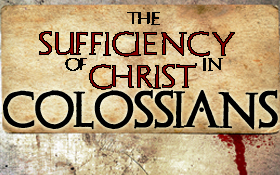In the fall of 2012, I enrolled in Dr. Sensing’s Homiletics class. Believe it or not, this was somewhat of a daring move for me to make. As a woman from the Churches of Christ tradition, I had heard for most of my life that I was not allowed to preach, not allowed to have a voice in the church. Though I no longer believed in or lived my life by that fallacious theological conclusion, the specter of it still haunted me.
You see, just a year before, when a funeral director saw me holding a Bible and asked if I’d be the one performing the service that day, my own family members had laughed out loud—right in front of me—at the preposterous idea that I, a woman, might be the preacher. And just a year before that, when I shared portions of my own narrative of my calling to ministry in a very public way, some responded with encouraging words, but others sharpened their linguistic barbs and aimed them directly at me and my fellow women ministers. But more than that, for my entire life I’d been silenced, simply because of my gender. And until I was in my mid-twenties (around the time I entered the GST) I’d not seen a woman preach or pray or lead a church, at least not while in the company of men. Not a single one.


These experiences haunted me. And my resulting inexperience at the homiletical task threatened me. I would be the only one in the class who’d never preached a sermon before. The only one who didn’t know what she was doing. The only one for whom all of this was intimidating—and not just because of its newness but because of the theological baggage that accompanied it. How in the world would I find my voice? And how in the world would I measure up? Besides that, how would I deal with the potential repercussions from my family if they found out what I was doing? Should I avoid the topic or come right out and talk about it? Needless to say, the class stirred up thoughts and feelings that most courses don’t.
Yet, intimidated as I was, I resolutely gave the class my all. I felt I owed it to myself, and not only to me but also to all women who’d been silenced in the church and not given this opportunity. And over the course of that semester I learned, at least in part, to preach. I was proud to do as well as I did in the class, and I’d like to share with you here some artifacts indicating my success. Below you’ll find a set of seven sermon sketches as well as manuscripts for the two sermons I preached in class. (I’d hoped to also include some audio files of me preaching the sermons, but the stomach bug, cold, and sinus infection I’ve had in two weeks leading up to my senior review have prevented that from happening. Alas.)
For many reasons, then, my participation in the homiletics course indicates greater competency in a wide range of MDiv outcomes. I was able to engage in spite of my own personal fears and limitations, showing a number of the qualities expected of MDiv graduates (outcomes 8abcd and 9abcd). And the content of the sermon sketches and the sermons themselves evidence my knowledge of the Christians scriptures (outcome 1abcd), my abilities to practice theology in contemporary contexts and lead the church as a minister (outcomes 4abcd and 6bcd), and my competency at written and especially oral communication (outcome 11abcd). Now, for your reading enjoyment:
To be sure, there’s still room for improvement in my preaching, and I’ve received some good feedback from Dr. Sensing and my classmates to help with that. You know, I still don’t foresee myself becoming a highly skilled full-time preacher anytime soon (or ever, really, given my church background and my current ecclesiology). But I know now that I at least can preach. This experience has shown me that I am capable.
 This experience has helped me jump the biggest hurdle of all: finding my own voice. And I’m not the only one who’s found my voice. Whether she wants it or not, so has the church. God grant that she may find the voices of many other daughters.
This experience has helped me jump the biggest hurdle of all: finding my own voice. And I’m not the only one who’s found my voice. Whether she wants it or not, so has the church. God grant that she may find the voices of many other daughters.




Tim Sensing
1:59 pm, 04.20.13
Laura,
Knowing you for a couple of years I would say you do have a strong voice and you wisely express it in many wonderful ways. After the class, let me affirm your public voice through the medium of preaching. While preaching is just one avenue of public expression, it is often overly exposed. You have the gifts and the wisdom to preach. I would listen in your congregation. May you have opportunities to express yourself often through this medium. While you do not seek the path of regular preaching, I’m thankful it can be added to your treasury of skills. You are blessed to have multiple ways for witness.